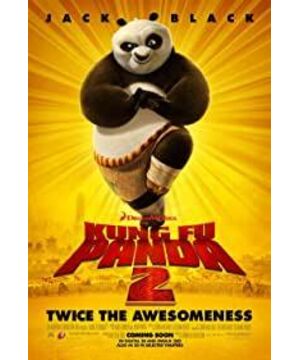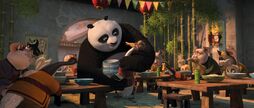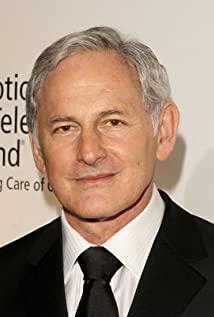I never imagined that an animated film made in America would carry such sincerity and courage, risking the risk of being drowned by the spit of the Chinese people. Facts have proved that a positive and sincere restoration is highly affirmed. In past Hollywood movies, China often appeared as a negative image. Even a soap opera like Desperate Housewives reveals a kind of contempt and misreading of the Chinese people. In the eyes of many Westerners, this is still a wild place. We lament their ignorance and reflect on our own inadequacies. It takes time for this kind of world image to break down and establish a new one. And the timely appearance of Kung Fu Panda at such a critical juncture, expressing its interpretation of China in a sincere and even awe-inspiring way, has won the hearts of the people. Saying that he is opportunistic and that the drunkard's intention is not to drink alcohol, or that he only puts money first, at least Kung Fu Panda has taught the Chinese people a lesson, and it has also allowed the world to understand China in a more positive way.
Going back to the movie itself, such an animated movie of less than one and a half hours really cannot carry too much thinking and exploration. He just fulfilled the function of his own entertainment. I can't blame it. Because from the first frame of the picture, the familiar Chinese atmosphere came to me. What Chinese filmmakers cannot achieve is precisely what "Kung Fu Panda" can achieve. Even if it is a shallow interpretation, it makes people feel more intimate. What is gratifying is that the film retains the original Chinese culture, and does not feel the collision and confrontation between the different value orientations of the East and the West from beginning to end. A Bao's persistence in finding relatives and his dazed face to the past are in line with the deep-rooted concept of family in China today. The interpretation of Chinese martial arts is also very important. In particular, the first Zen-like simplicity and elegance conveys the realm of Chinese martial arts to the world in pursuit of spirituality and unity of mind and spirit. Of course, this alone is not enough to explain how far the film has gone in interpreting Chinese culture. After all, these are explained by many martial arts films exported to the West before. Really, it's the details throughout the film that underscore that it's done its homework. Even if it is a brick and a tile, every plant and every tree are trying their best to restore the taste of China. The eyes are full of familiar landscapes, and the ears are all familiar with local accents, especially the Chinese dubbed version. This kind of meticulous care is what Chinese-language films lack.
Of course, "Kung Fu Panda 2" did not go further in the exploration and understanding of Chinese culture, and basically stayed at the level of three years ago, which is somewhat regrettable. The use of many Chinese elements is just a modification and inheritance, and it is no longer as stunning as when it was first seen. The biggest setback is in the story. Such a tepid and uninspired story structure, compared to the first one three years ago, is somewhat cut corners and lacks sincerity. But the process of watching the movie is not boring, even laughter, which is mostly due to the excellent grasp and control of the rhythm of the film and the management of Xiaoguo.
The 3D effect of the film is obviously better than the previous "Thor", "Fast 5" and "Plus 4", at least worthy of his fare. Basically, it highlights the brand-new visual experience that 3D technology brings to the film. To a certain extent, inheriting the mantle of Avatar, there is a sense of immersive reality. The delicacy and gorgeousness of the picture is still the same, which is not inferior to Hollywood's world-leading film technology.
Finally, let's talk about the voice acting. What I saw was the Chinese-dubbed version, which of course was passively accepted when there was no choice. Judging from past experience, even if the dubbing of animated films is better than other types of films, it is still difficult to match the original English dialogue. It's like someone chewing food and feeding it into your mouth, losing the pleasure of chewing and missing the authentic enjoyment. Fortunately, this time it was an extraordinary performance. The expression of the language and the tone of the dialogue are not listed for the time being, but in terms of content alone, there are indeed many remarkable points. After all, this is an animated film that looks at China from the perspective of China. The dubbing staff play at will, giving the film interesting and extremely localized dialogues. Although I have never seen the original English dialogues, I believe that the Mandarin dubbed version this time is definitely Not to mention those who have surpassed and refined them, I would like to commend them here. Of course, this kind of match made in heaven can be met but not sought after.
So far, although Kung Fu Panda 2 has not been able to continue the amazingness of the first part, it is also a qualified and competent sequel. As a family-friendly animated film, its simplicity and simplicity are just right.
View more about Kung Fu Panda 2 reviews











